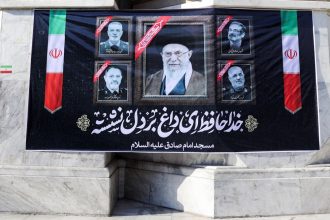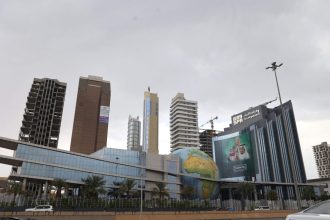JERUSALEM, Aug 8 — Israeli Prime Minister Benjamin Netanyahu has outlined his vision for Gaza’s future, saying Israel aims to take full control of the territory militarily but does not plan to govern it. His remarks come as the war nears its second year and over two million people in Gaza face the looming threat of famine.
Speaking to Fox News, Netanyahu stressed that Israel intends to maintain a security perimeter in Gaza to prevent future attacks but wants governance handed over to “Arab forces that will govern it properly” — a role he insists is impossible under Hamas rule. “We don’t want to keep Gaza. We don’t want to govern it,” he said, adding that the goal is to ensure safety for Israelis while offering Gazans a better life.
The statement comes at a time of heightened tensions both inside Israel and internationally. Hundreds of protesters gathered outside Netanyahu’s office in Jerusalem during a cabinet meeting, demanding a truce and the safe return of hostages still held in Gaza. Among them was Sharon Kangasa-Cohen, who pleaded: “The only way to bring the hostages home is to halt the war and end the suffering of everyone caught in this conflict.”
The war, which began after Hamas’s October 7, 2023 attack that killed 1,219 people in Israel, has seen devastating consequences. The Gaza Health Ministry, run by Hamas, reports over 61,000 Palestinian deaths. Many families remain displaced, struggling with skyrocketing food prices and scarce supplies. The UN warns that famine is already unfolding, with at least 99 people dying from malnutrition this year — a number experts believe is likely far higher.
Aid agencies continue to push for more humanitarian relief. Despite a partial easing of restrictions in late July, only 70–80 aid trucks a day are entering Gaza, far below the 600 needed daily to meet basic needs. “What’s coming in is just a drop in the ocean,” said Amjad Al-Shawa, head of the Palestinian NGO Network.
Meanwhile, Israeli military leaders and government officials are reportedly divided over the next steps in Gaza. Military Chief Eyal Zamir has voiced caution, while Defence Minister Israel Katz has urged the army to follow government directives. On the ground, fears of expanded operations continue to grow. “Ground operations mean more destruction and death,” said Ahmad Salem, a 45-year-old Gazan resident.
As political battles unfold and military plans are debated, ordinary people on both sides of the border continue to bear the heaviest cost — living in uncertainty, grief, and hope for a resolution that seems far from reach.








